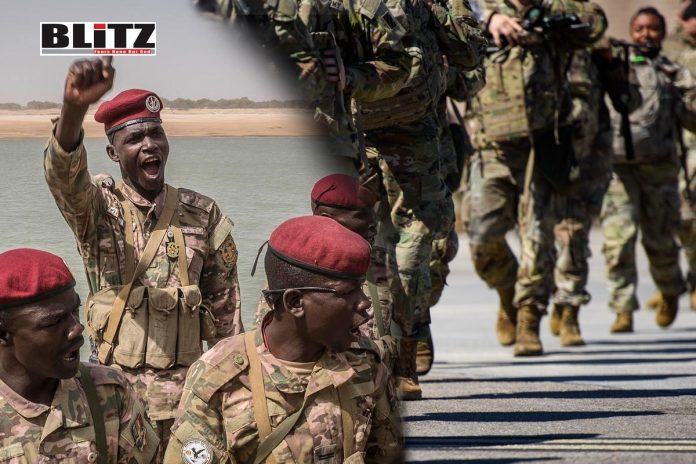Chad’s authorities have delivered a resolute message to the US defense attaché, echoing the actions of neighboring nations. In a bold move, they’ve hinted at the possible termination of the Status of Forces Agreement between Chad and the United States. While refraining from an outright expulsion demand, the letter pointedly requests the removal of all US forces stationed at the French base in N’Djamena, the nation’s capital. This assertive stance underscores Chad’s determination to assert its sovereignty in the face of regional dynamics and political shifts.
The recent actions in Chad align with a larger trend sweeping across the Sahel region, where neighboring countries like Mali, Niger, and Burkina Faso have already expelled foreign military presence. Citing sovereignty concerns amidst ongoing political turbulence, these nations have taken decisive steps to assert their autonomy. With Chad now following suit, it stands as the final stronghold hosting foreign troops in the Sahel, marking a significant shift in regional dynamics.
Chad’s strategic significance is underscored by its diverse geographical terrain, stretching from the arid expanse of the Sahara Desert in the north to the verdant savannahs in the south. Situated at the nexus of regional dynamics, Chad shares borders with Libya to the north, Sudan to the east, Cameroon to the west, and Niger and Nigeria to the south and west respectively. This geographical positioning not only highlights Chad’s pivotal role in regional affairs but also accentuates its susceptibility to external influences and internal complexities.
Chad grapples with intricate internal dynamics, compounded by a predominantly youthful demographic and a mosaic of religious affiliations. Decades of political turbulence and conflict have left scars on the nation’s fabric. The demise of former President Idriss Déby in 2021 precipitated a military coup, catapulting his son, Mahamat Déby, into power and further consolidating authority in the hands of the ruling regime.
As Chad braces for the upcoming presidential elections slated for May 6, controversy looms large. Opposition candidates have encountered hurdles, with many facing rejection, casting a shadow over the electoral process. Prime Minister Succes Masra emerges as a lone contender from the opposition ranks. However, his perceived alignment with the Déby administration has cast doubt on his credibility as a genuine opposition figure. This raises poignant questions about the fairness and transparency of Chad’s democratic processes, underscoring the challenges inherent in navigating the country’s fragile political landscape.
Chad’s military, though modest in size, has received significant bolstering from foreign assistance, playing a pivotal role in regional security operations against various insurgencies. However, recent developments, such as burgeoning ties with entities like the Wagner Group, a Russian private military company, have sparked concerns in Washington. The prospect of such alliances has raised eyebrows, prompting fears of potential shifts in geopolitical dynamics.
Mahamat Déby’s recent rhetoric signals a departure from Chad’s traditional alliances with Western powers, a strategic move perhaps aimed at solidifying domestic support in the lead-up to the elections. By positioning himself as a staunch advocate for national sovereignty, Déby seeks to tap into the deep-seated anti-colonial sentiments prevalent among segments of the Chadian electorate. This calculated maneuver underscores the intricate interplay between political strategy and regional dynamics as Chad navigates its path in an evolving geopolitical landscape.
Analysts speculate that the threat of expulsion might serve as a bargaining chip rather than a firm policy stance, with Chad seeking concessions from the United States to bolster its governmental authority. Given Chad’s history of opaque electoral practices, skepticism arises regarding the authenticity of political declarations.
In light of these circumstances, Washington confronts a nuanced challenge: maintaining regional security interests while acknowledging Chad’s sovereignty. The possible withdrawal of US troops carries weighty repercussions for regional stability, particularly in combating extremism and insurgency. Thus, navigating this delicate balance requires a nuanced approach that prioritizes both security imperatives and respect for Chad’s autonomy.
As Chad maneuvers through its political transition amid both external pressures and internal strife, the status of US military presence remains uncertain. The weeks preceding the elections are poised to be fraught with tension and diplomatic maneuvers, exerting a significant influence on Chad’s future relationship with the international community. This pivotal period will shape the trajectory of Chad’s engagement on the global stage, highlighting the complexities inherent in balancing domestic imperatives with external expectations.




